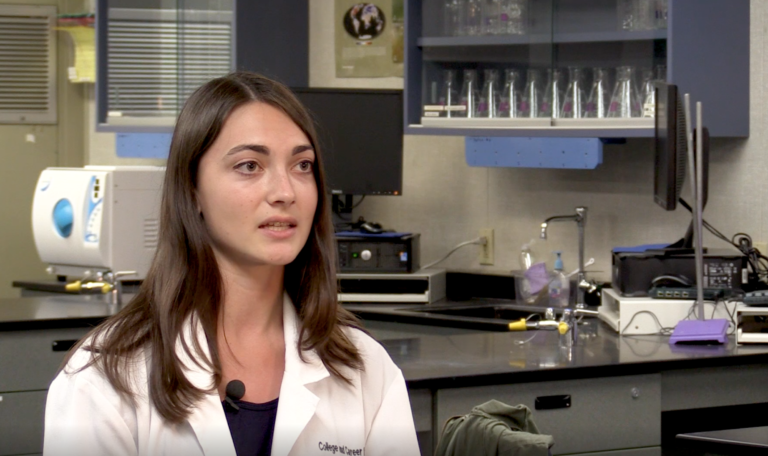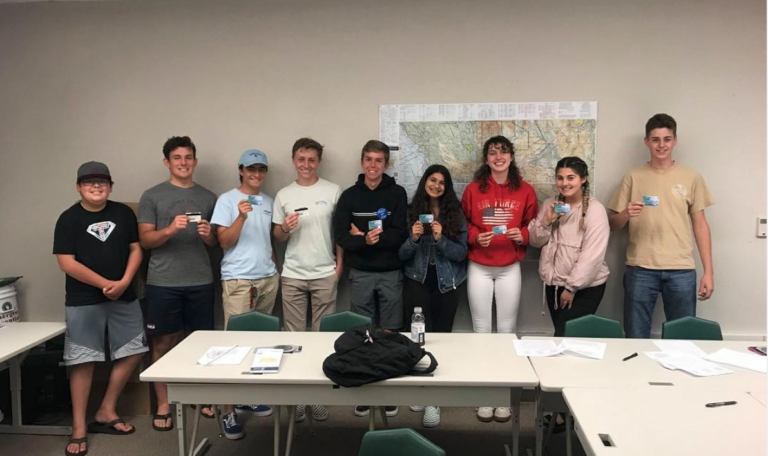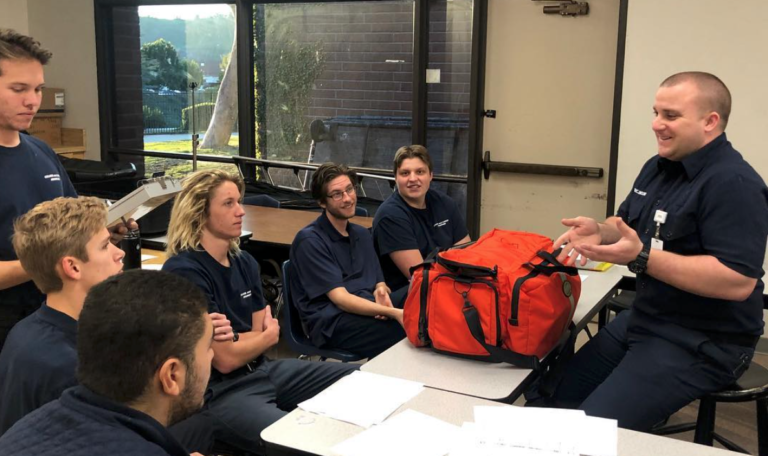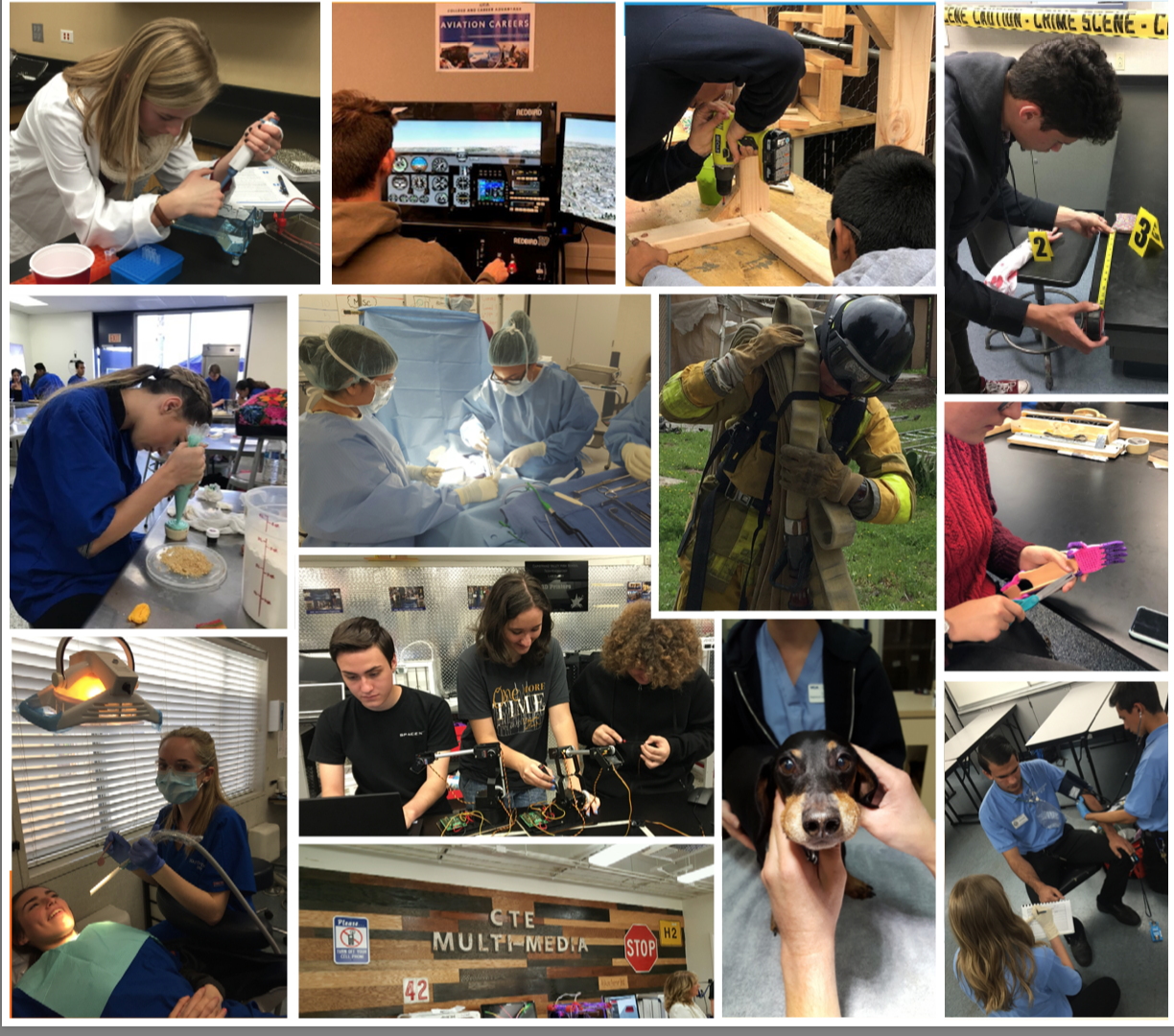Although it has gone through changes, expansions and a name change, College and Career Advantage’s(CCA) purpose of providing career education has not wavered.
This school year, CCA celebrates 50 years of educational excellence.
The program – a joint partnership of Capistrano Unified and Laguna Beach Unified School Districts – provides high quality, relevant and engaging career technical education across the region that prepares students for career and academic success.
“Courses that are taught by credentialed teachers who are industry experts provide students the opportunity to learn career skills in classrooms and labs that are modeled after the workplace,” said CCA Executive Director Pati Romo. “Business partners who provide advice on curriculum and projects that are taught in class helps to ensure that students receive the latest and greatest training in current trends and developing fields.”
Such was the case for Megan Young, a then senior at Dana Hills High School studying atoms, molecules and ions in her AP chemistry class. Having enjoyed the lab work and research science lessons, she decided to further her learning by taking a semester of biotechnology, a course offered through CCA.
There, Young learned foundational technical skills integrated in science, mathematics and language arts that would lead to a selection of specific pathways within health science and medical technology. Today, she is an undergraduate student at University of California, San Diego, with plans to attend graduate school and earn a Ph.D. in chemistry.

“I see it all the time now when I’m working in my lab that I remember doing in high school, and that’s not a normal experience people get to have,” Young said in a video explaining the benefits of CCA. “They were like, ‘Wow, you know about this stuff already and seem confident.’ I really enjoyed talking about research and science and it didn’t seem like I was a freshman and they were grad students.”
Biotechnology instructor Kristine Clarke said the course introduces students to the cutting-edge field of biotechnology, where they are able to perform scientific tests and experiments analyze and interpret results and gain an understanding of biological concepts used in the field.
“Students are getting their hands on equipment that they would find in a lab at a university or industry,” Clarke said. “When they are done, they are able to put together a resume that would give them an advantage over other students as they move forward in their education.”
Since 1970, CCA (formerly South Coast ROP) has provided students with relevant and engaging Career Technical Education. CTE prepares students with technical, academic and employability skills for success in both college and career.
“CCA offers many opportunities for students to earn college credit and the honors weight grade point average bump,” Romo said. “This way, students who are currently taking AP courses are able to take CTE courses as well, increasing their ability to be prepared for both college and career.”
With 15 industry sectors, students may choose from 58 pathways leading to industry certifications, postsecondary certificates and degrees. There are several opportunities with local business and industry partners for students to learn in internships and gain first-hand work experience, many times leading straight to a career. With investigation labs on every middle school campus, CTE courses on all high school sites and regional after school courses, CCA delivers college and career readiness for all students.

Courses taken in high school that are approved by UC/CSU and appear on the institution’s “a-g” course list meet the entrance requirements for the University of California and California State University admittance. These courses are project-based, academically challenging, involve substantial reading, writing, problem solving and laboratory work. They also show serious attention to analytical thinking, factual content, and developing students’ oral communication and listening skills.
The Thomas B. Fordham Institute, which provides educational research and analysis, conducted a report wanting to know whether students who participated in CTE were achieving better outcomes than their peers.
The report concluded that “the more CTE courses students take, the better their education and labor market outcomes.” They found that even if a student takes just one additional career-oriented course more than the average, they will have a greater chance of graduating from high school and enrolling in a two-year college in the next school year.

Romo said students often are intimidated by going to a college campus, so they are able to take courses on the high school campus and prepare themselves for the next step in education. They complete internships, go on field trips such as to visit the Google offices, and participate in discussions with guest speakers.
“We’ve built some great pathways and are looking to fill gaps and increase opportunities for students to earn college credit,” Romo said. “Our goal is for students to get an AA degree in high school or have more opportunities for a certificate – many can have 18 units by graduation.”

